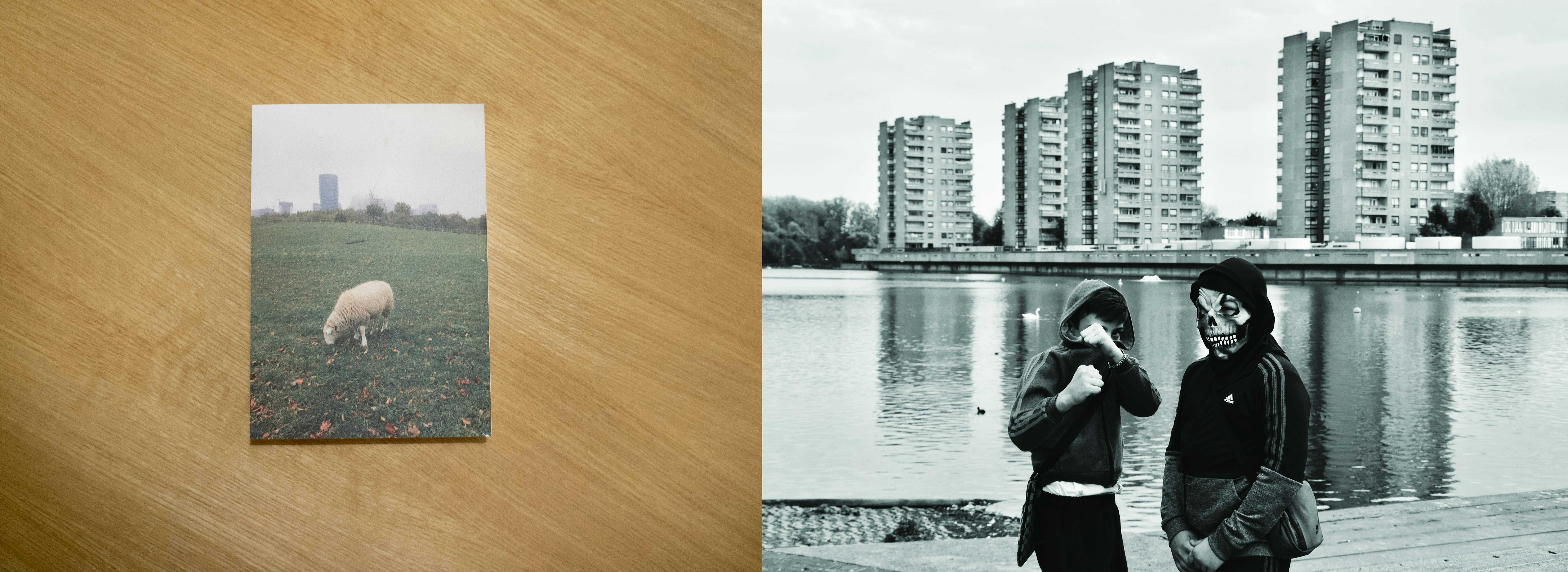Urbanizing Suburbia
24–25 november 2023

Warmly welcome to two evenings at Konsthall C based on the new book Urbanizing Suburbia: Hyper-gentrification, the financialization of Housing, and the remaking of the Outer European City by Tahl Kaminer/Leonard Ma and Helen Runting (eds).
Architects, scholars, planners, and housing activists from Stockholm, Berlin, and Copenhagen share insights on resisting changes that render suburbs unrecognizable and unaffordable. Join us as they discuss their experiences, knowledge, and strategies.
The suburbs of European cities face concerted efforts from governments, individuals, and governments to densify, gentrify, and render them both unrecognizable and unaffordable to their residents. At the same time, the movements resisting such changes are increasingly able to draw on shared experiences, knowledge, and strategies. How are we to register, analyze or resist immaterial shifts in ownership structures, access conditions, or development conditions? How are we to imagine more equitable alternatives?
Urbanizing Suburbia is a new book that explore these dynamics in Europe’s outer city, including a study of Stockholm’s Hökarängen. For the book release, its authors, in collaboration with “Under asfalten, havet” at Konsthall C, invite scholars, planners, and housing activists from Stockholm, Berlin, and Copenhagen to present their thoughts on the urbanization, gentrification, and financialization of suburbia.
Participating in the conversation November 24, at 18.00 to 22.00
Colleen Rose Higgins, Elof Hellström, Helen Runting, Jennifer Mack, Leonard Ma, Lily Chichanowicz, Marie Northroup, Sara Vall, Søren-Emil Schütt, och Tahl Kaminer.
Colleen Higgins (DE) is a tenant in Berlin and an activist with Deutsche Wohnen & Co. Enteignen, the campaign to socialize corporate-owned housing in the city. She works specifically with Right to the City, focusing on building solidarity among non-German tenants. Colleen is also active in organizing with tenants to fight Eigenbedarf (“own-use”) evictions, an issue that is increasingly threatening Berliners, and one she was personally affected by last year.
Elof Hellström (SE) is artistic director at Hägsterstensåsens Medborgarhus, and a Lecturer at KKH where he teaches the course Tusen kulturhus. Elof was (together with Maryam Fanni, Sarah Degerhammar, and Klara Meijer) a founding member of Söderorts Institut För Andra Visioner (The South Districts’ Institute for Other Visions, SIFAV), an interdisciplinary group based in Stockholm, investigating the city through acts including collective writing, radio, city walks, ready made, and reading groups.
Jennifer Mack (SE) is a researcher within architecture and anthropology. Jennifer’s work focuses on equality, power, ecology, and social change in the built environment, combining approaches from history, ethnography, and the environmental humanities. Her current research focuses on the stigmatization, renovation, and demolition of modernist housing in Sweden and Denmark. Jennifer is Associate Professor at KTH Royal Institute of Technology and Pro Futura Scientia Fellow at the Swedish Collegium for Advanced Study in Uppsala.
Lily Cichanowicz (D) is an organizer for Right to the City, the English-speaking working group of the Deutsche Wohnen & Co. Enteignen campaign. Their initiatives focus on how Berlin’s housing crisis intersects with other issues affecting migrants such as democratic deficits, institutional discrimination, job precarity, and language injustice. She also works as a freelance writer and editor with an interest in social movements, labor, and technology both in Berlin and beyond.
Marie Northroup Christensen (DK) is a social housing tenant in Copenhagen. She is active in the association for a just housing politics (Initiativet for Retfærdig Boligpolitik) as well as the tenant grassroot network Almen Modstand. Here she has taking part in community based legal rights work, establishing relations between human-right lawyers and tenants neighbourhoods facing evictions and displacement. MA in Social Anthropology, working on topics of urban civil engagement, domestic border politics and spatial justice.
Sara Vall is an architect and urban planner (SE). Sara maintains a strong interest in influencing the processes that shape our built environments, and as a local resident of Hökarängen, has engaged with local planning decisions affecting green space and traffic planning.
Søren-Emil Schütt (DK), works in various ways with housing areas and public urban spaces, in particular with thinking together physical and social citizen-driven development in sustainable ways. Fx. By exploring the transformative potential of art. He has also written several professional and methodological articles that revolve around process-oriented urban development - including the establishment of sports facilities, local community organization, civil society strategies and democracy. Søren-Emil lives in the housing area of AKB Lundtoftegade in Copenhagen and participates in both formal and informal tenants’ democracy associations and activist groups. He has a master’s in philosophy.
Urbanizing Suburbia is edited by:
Helen Runting (SE) is an architectural theorist with a background in urban planning and design. She is a founding partner in Stockholm-based architecture practice Secretary, and regularly publishes critique, reviews, and essays in academic journals and the architectural press. Secretary’s work takes the form of installations, publications, and buildings that engage with architecture’s biopolitics and potential within the late welfare state.
Leonard Ma (FI) is a Canadian architect based in Helsinki. He is a member of New Academy, and teaches urban studies and architecture at the Estonian Academy of Art. His research focuses on neoliberalism, financialization, and the legacy of the welfare state, and has been published in e-flux, The Avery Review, Drawing Matter and AA Files. Leonard is a practicing architect and founding member of PUBLIC OFFICE.
Tahl Kaminer (UK) is reader in architectural history and theory at Cardiff University. He is the author of The Efficacy of Architecture (Routledge, 2017) and Architecture, Crisis and Resuscitation (Routledge, 2011), and co-editor of the anthologies Urban Asymmetries (010, 2011), Critical Tools (LLV, 2011) and Houses in Transformation (NAi, 2008).
These two days are part of 'Under Asphalt, the Sea,' a project exploring new approaches to how we create our shared city.
With support from the Swedish Arts Council, the JPI Urban Europe research project 'CoNECT' (Sweden) at KTH School of Architecture, EKA Estonian Academy of Art.
In collaboration with ABF Stockholm.
Film program
Saturday 25th November, Konsthall C
18:00-18:20’ The Dissonance of Memory (chapter IV) (2018) Maj Hasager, 20mins Tracing the waves of change, progress and re-design of the surrounding areas outside Aarhus, Denmark, through archival images and field recordings processed into an abstract soundscape (Montage film)
18:20-19:00 The Healing (2021), Hannah Elbke, Natalia Anna Ciepiel, Til Vægs, 41 min
Can a dedicated community of Copenhageners heal their social housing area with art and creativity and avoid being placed on the list of hard ghettos? (Documentary)
19:00-19:30 Break and discussion
Young black youth discusses London, knife crime and policing and how gentrification produces such social breakdown, racist policing etc. ‘Surviving the State’ by Voices that Shake came out of a collaborative filming and editing process, by young people from different areas around London during the Shake programme ‘Healing the Cuts’ (summer 2017) (Grass roots documentary)
19: 45-21:16 Not in My Neigbourhood (2018), Kurt Orderson, 86mins
Not in My Neigbourhood tells the intergenerational stories of spatial violence in Cape Town, New York and São Paulo. The film aims to build solidarity among active urban citizens by illuminating the tools and approaches used by urban activists to shape and navigate their cities that have been affected by colonisation, architectural apartheid and gentrification (Documentary).
21:15-22:00 Discussion
22:00 End

